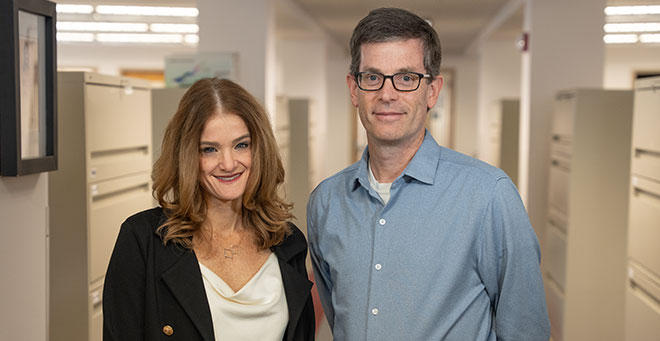
A research team led by UMass Chan Medical School perinatal mental health expert Nancy Byatt, DO, MS’15, MBA, professor of psychiatry, obstetrics & gynecology, and population & quantitative health sciences, has secured a $21 million award from the Patient-Centered Outcomes Research Institute (PCORI) to conduct a perinatal mental health equity study. The study will be co-led by Wendy Davis, PhD, executive director of Postpartum Support International, a nonprofit family support organization, and Christopher Sheldrick, PhD, professor of psychiatry at UMass Chan.
The Pathways to Perinatal Mental Health Equity research study is a cluster randomized control trial that will compare a health care model of improving mood and anxiety disorder care in OB-GYN practices with a health care-community partnership model. The study will include 32 OB-GYN practices across the country; half will follow the health care model; the other half will follow the health care-community partnership model.
The study will seek to make the approaches scalable by training perinatal psychiatry access program teams across seven states to implement the models and then continue training others after the life of the study. To ensure an explicit focus on equity, anti-racism training and trauma-informed care training, screening and referrals for social determinants of health will be part of both models of care.
“Mental health and substance use disorders are the leading cause of maternal mortality in the United States. Most perinatal individuals do not have access to the mental health care they need,” Dr. Byatt said.
The health care-community partnership model will include Postpartum Support International’s peer support model, which will provide psychoeducation, behavioral activation and navigation, in addition to the health care model.
“This multiyear study is a unique opportunity to build on the strength of a health care-community partnership to increase perinatal providers’ ability to integrate trauma-informed care with peer support, increasing individuals’ access to treatment that best meets their needs. Equally important, however, is generating scientific evidence on the most effective interventions for addressing inequities,” said Dr. Davis.
The study will involve an initial feasibility phase to maximize the likelihood of full trial success.
